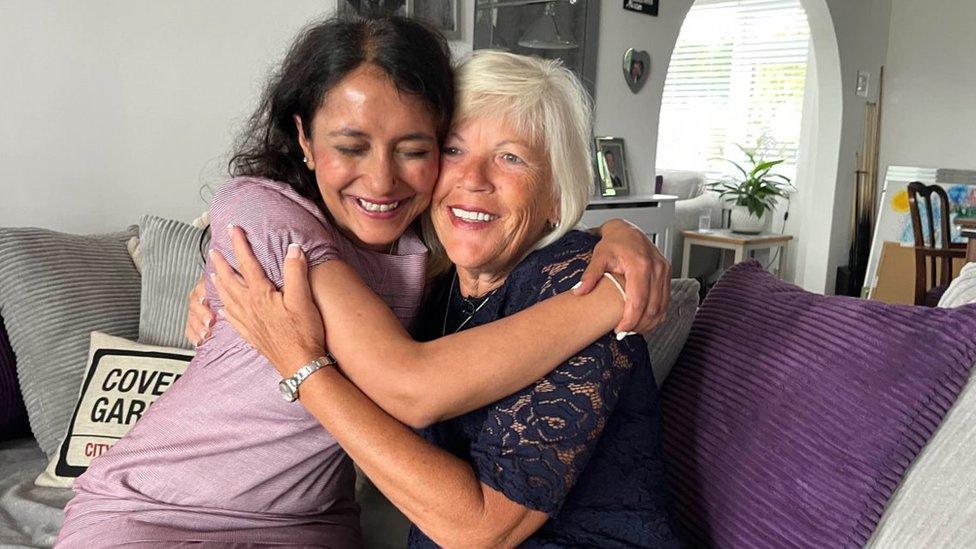Inquiry chair praises courage of victims' families
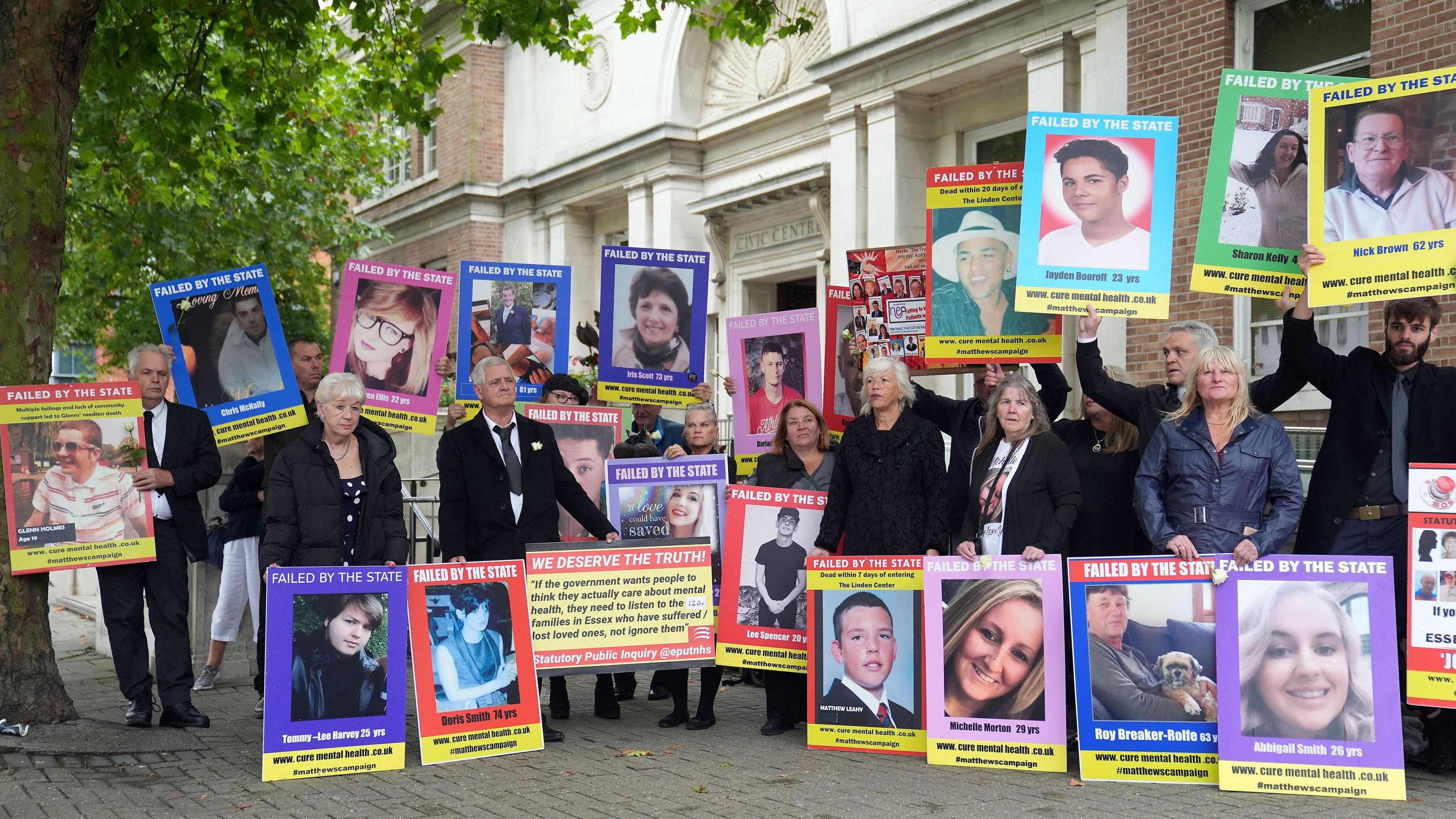
More than 40 victims' families have spoken at the Lampard Inquiry in its opening three weeks
- Published
The chair of an inquiry into more than 2,000 mental health-related deaths in Essex has praised the "courage and candour" of victims’ families.
The Lampard Inquiry is investigating the deaths of people in the care of mental health services in Essex between 2000 and 2023.
The inquiry, which has been sitting for the last three weeks, has now adjourned until November.
Baroness Lampard said that statements from bereaved families “had made a lasting impression” on her.
More than 40 people have given commemorative statements so far, telling the inquiry about their loved ones and what kind of people they were before they died.
Addressing the inquiry on its final day before an adjournment, Baroness Lampard said the opening statements had been “thought-provoking”.
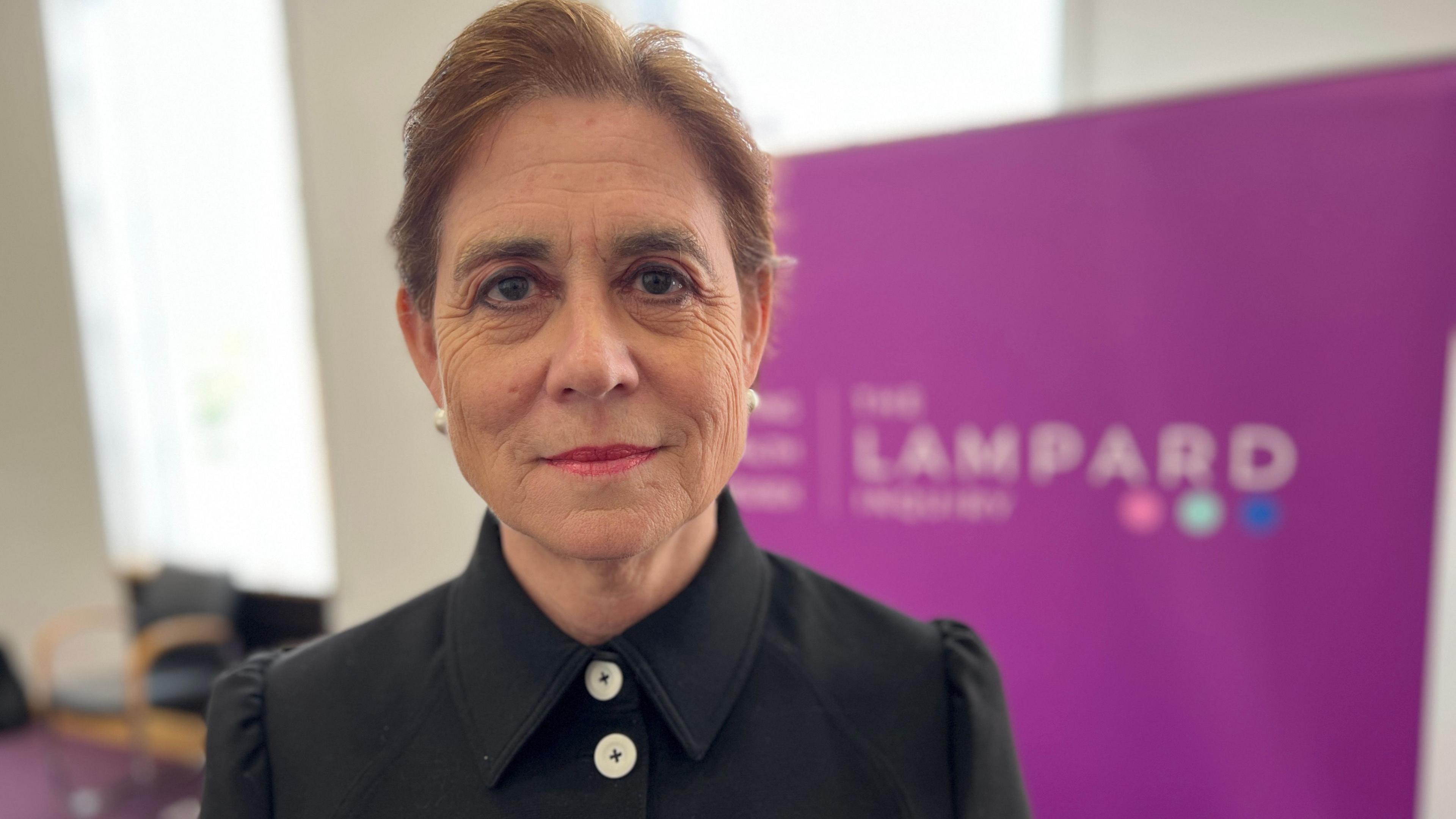
Baroness Lampard's full report is not expected to be published until 2027
"I know how difficult and emotionally challenging it must have been to contribute to these hearings," Baroness Lampard said about those families which had spoken.
“I really appreciate the courage and effort it will have taken together up precious memories, both happy and the more distressing ones, and to share them in such a public forum.”
The personal accounts had been “provided with grace and candour”, Baroness Lampard said, adding that “they have certainly made a lasting impression on me and the whole of the inquiry team”.
Nikki Fox, BBC health correspondent, reflects on three weeks of testimony:
It has been harrowing to hear the testimony of relatives.
This inquiry has given them a platform, after some have fought for a decade.
During the first session, Baroness Lampard could even be seen wiping away a tear.
It’s noticeable that many relatives now need mental health help from the NHS themselves.
Some spoke with passion, some so distraught they had to battle to get to the end of their statements. But all were determined.
Those lost include a removal man, a parish councillor, students, grandmothers and grandfathers and mothers with four children.
Some common threads were talked about: people whose additional needs like autism, were not properly considered, families worried that medication seemed to be the only answer, those discharged from mental health units without support in the community, safety risks in wards and the exclusion of families from their loved one’s care.
Hearing the statement from Essex Partnership University Foundation Trust was also significant - a public apology and the acknowledgement of the seriousness of allegations, like staff sleeping while observing suicidal patients and sexual abuse.
But this is only the beginning.
When evidence sessions start next year, trusts and NHS bodies will be questioned on how they operate and why failures happen.
Staff witnesses could be called.
The whole truth is what relatives want to hear, to effect real, lasting, and national change.
'Premature and preventable'
On the last day of the first round of hearings, the inquiry also heard from Lisa Morris who, alongside Melanie Leahy, spearheaded the campaign to secure a statutory public inquiry.
Lisa’s son, Ben Morris, was just 20 years old when he died at the Linden Centre in Chelmsford in 2008, just 20 days after being admitted.
"Ben had so much to live for and so much to look forward to," Ms Morris told the inquiry.
"His death was premature, unnecessary and preventable."
"Ben truly was one in a million," his mother told the inquiry, adding: "My life will never be the same without him in it."
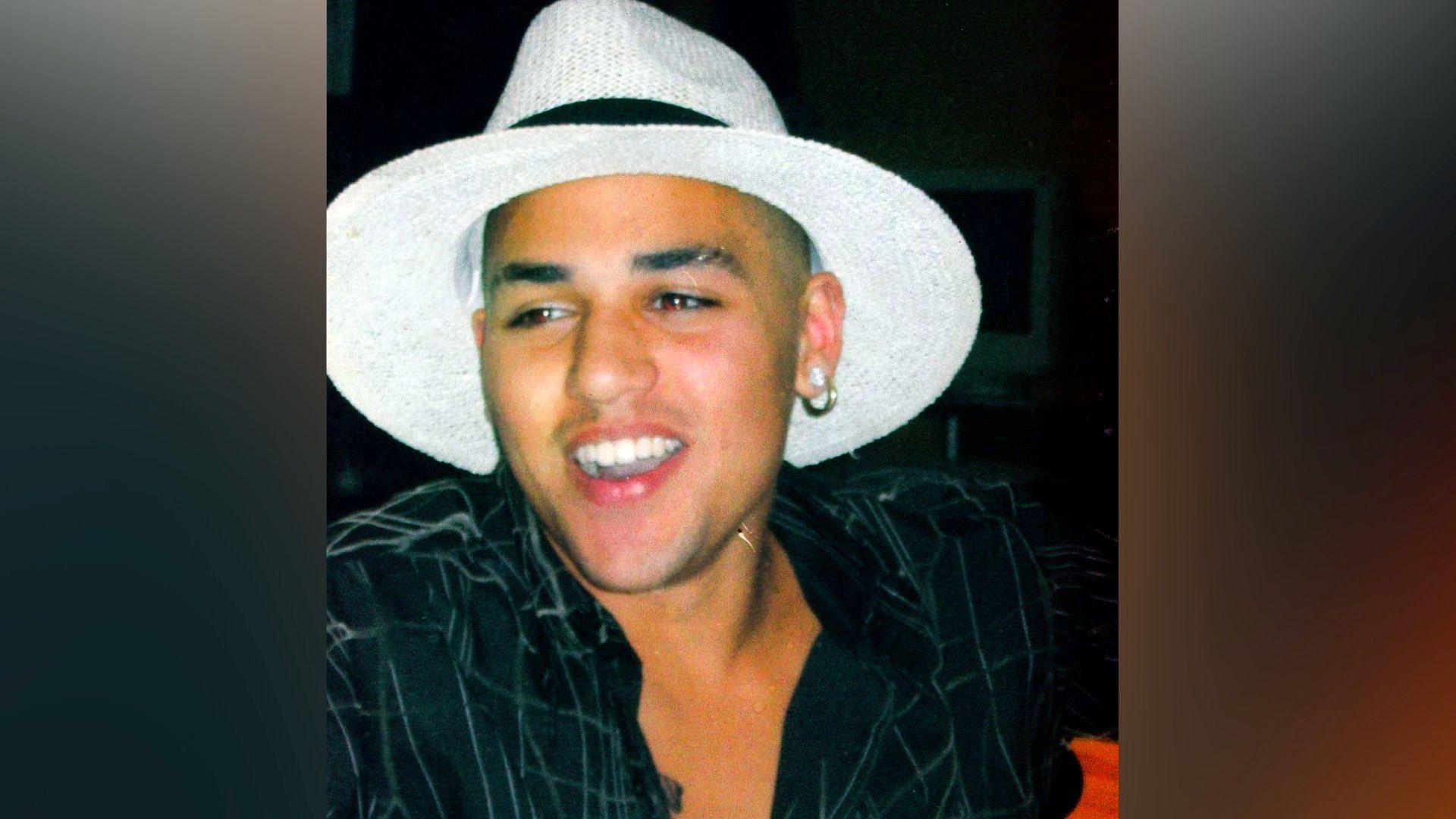
Ben Morris died less than three weeks after being admitted to the Linden Centre in Chelmsford
The NHS trusts responsible for mental health services across Essex used their opening statements to the Lampard Inquiry to apologise to victims' families, adding that they were keen to work with the inquiry to help get the answers that patients, families and carers were seeking.
The inquiry will resume again in November, when it is expected to hear from more bereaved families as well as former mental health patients.
Evidence sessions are due to begin in the new year and are likely to run until 2026, with Baroness Lampard’s final report not expected to be published until the following year.
Get in touch
Do you have a story suggestion for Essex?
Follow Essex news on BBC Sounds, Facebook, external, Instagram, external and X, external.
- Published24 September 2024
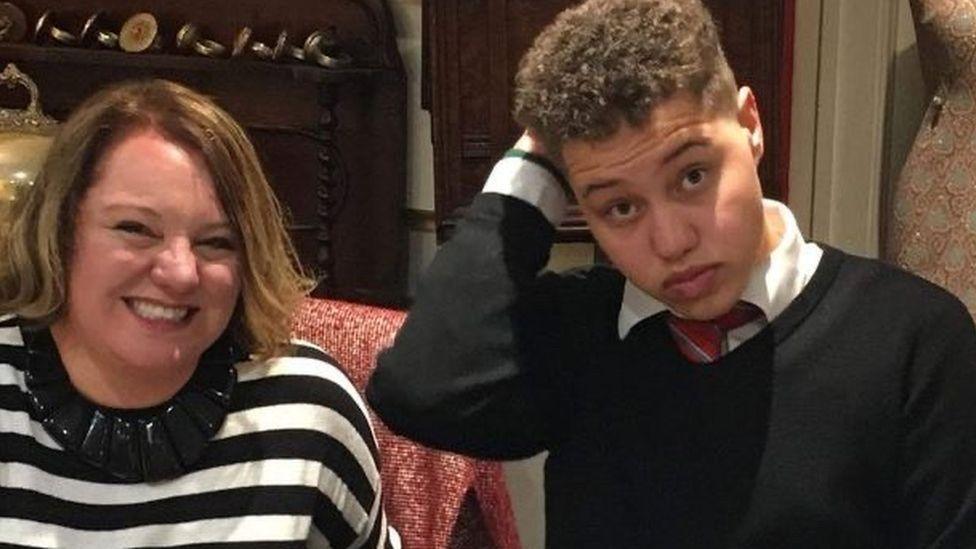
- Published17 September 2024
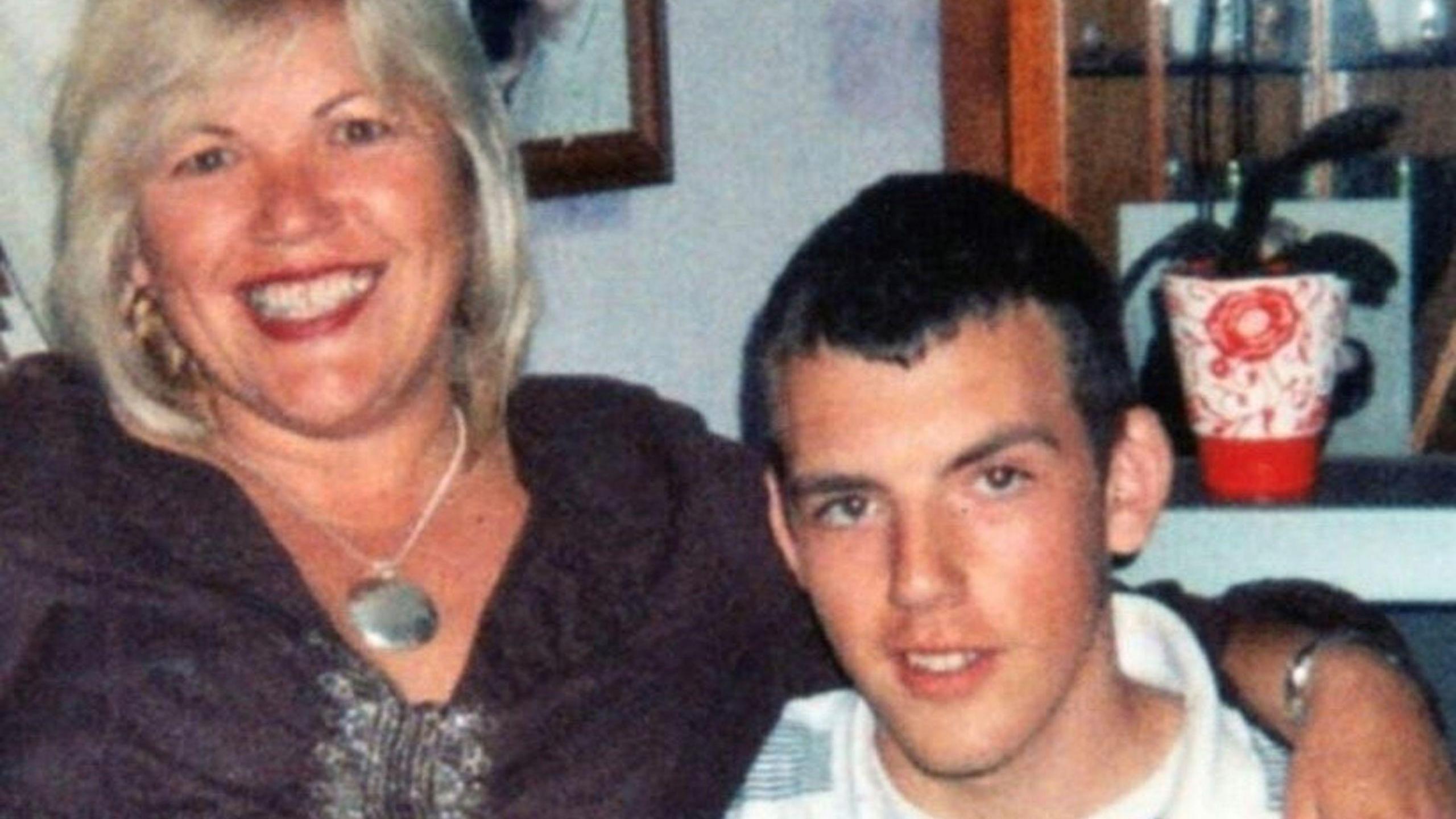
- Published13 October
- Published8 September 2024
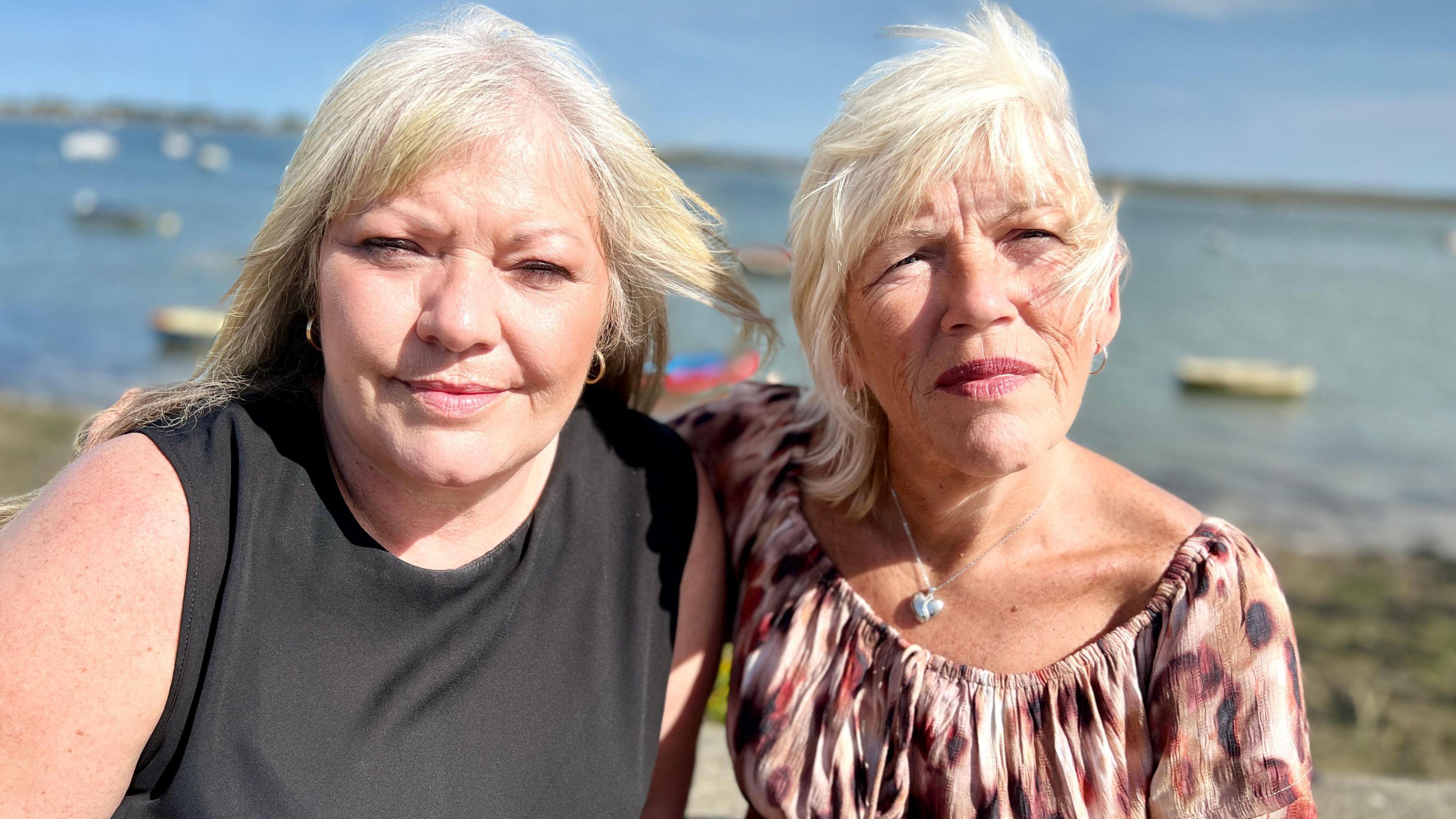
- Published28 June 2023
